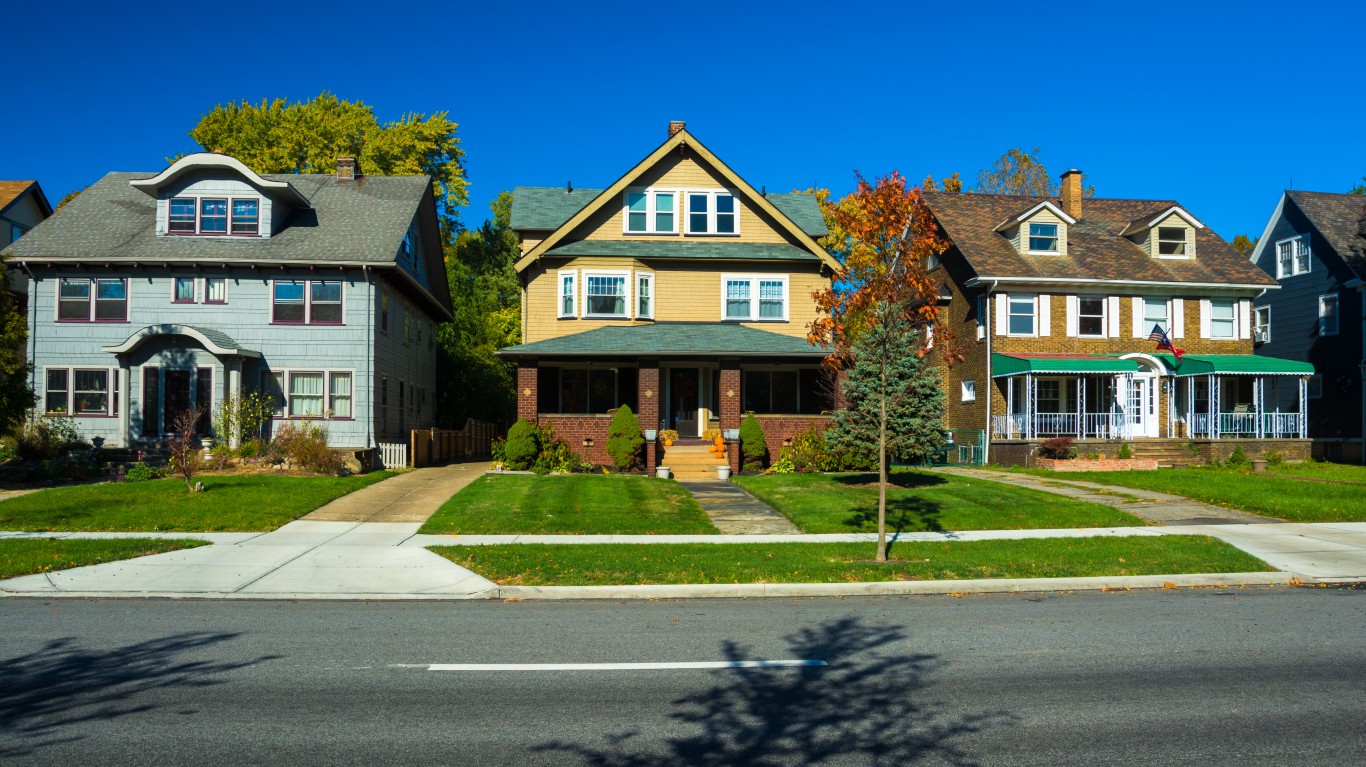
The S&P/Case-Shiller home price index for August increased by 5.5% for the 10-city composite index and by 5.6% for the 20-city composite index. The national index rose 5.1% year-over-year, compared to a 5.6% gain in July. The consensus estimate for month-over-month seasonally adjusted growth was 0.1%, and the year-over-year estimate called for growth of 5.8% in the 20-city index.
The index tracks prices on a three-month rolling average. August represents the three-month average of June, July and August prices.
Average home prices for August are back at their levels in the spring of 2005.
Compared with their peak in the summer of 2006, home prices on both indexes remain down about 16% to 17%. Since the low of March 2012, home prices are up 28.8% and 29.5% on the 10- and 20-city indexes, respectively.
ALSO READ: States With the Widest Gap Between Rich and Poor
All 20 cities in the index posted year-over-year gains, and all also experienced a slowdown in year-over-year growth rates. In three cities — Charlotte, San Diego and San Francisco — the month-over-month change was negative. San Francisco posted its largest decline since February of 2012 and is the only city to have posted a negative return for two consecutive months, posting a decline of 0.4% in August on top of a decline of 0.3% in July.
All cities except Cleveland saw annual gains slow down, with Las Vegas dropping from an annual gain of 12.8% in July to a 10.1% gain in August.
The chairman of the S&P index committee said:
The deceleration in home prices continues. The Sun Belt region reported its worst annual returns since 2012, led by weakness in all three California cities — Los Angeles, San Francisco and San Diego. Despite the weaker year-over-year numbers, home prices are still showing an overall increase, as the National Index increased for its eighth consecutive month. …. Despite softer price data, other housing data perked up. September figures for housing starts, permits and sales of existing homes were all up. New home sales and builders’ confidence were weaker. Continued labor market gains, low interest rates and slower increases in home prices should support further improvements in housing.
ALSO READ: America’s Most Polluted Housing Markets
Get Ready To Retire (Sponsored)
Start by taking a quick retirement quiz from SmartAsset that will match you with up to 3 financial advisors that serve your area and beyond in 5 minutes, or less.
Each advisor has been vetted by SmartAsset and is held to a fiduciary standard to act in your best interests.
Here’s how it works:
1. Answer SmartAsset advisor match quiz
2. Review your pre-screened matches at your leisure. Check out the advisors’ profiles.
3. Speak with advisors at no cost to you. Have an introductory call on the phone or introduction in person and choose whom to work with in the future
Thank you for reading! Have some feedback for us?
Contact the 24/7 Wall St. editorial team.




